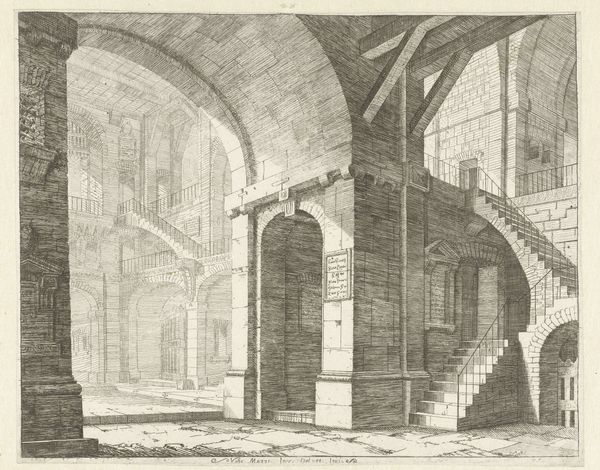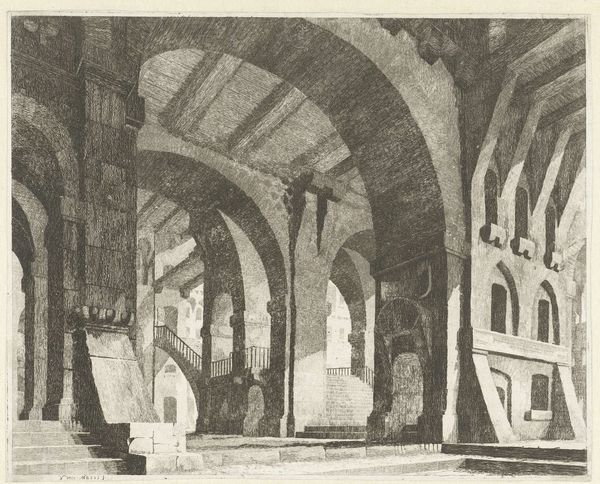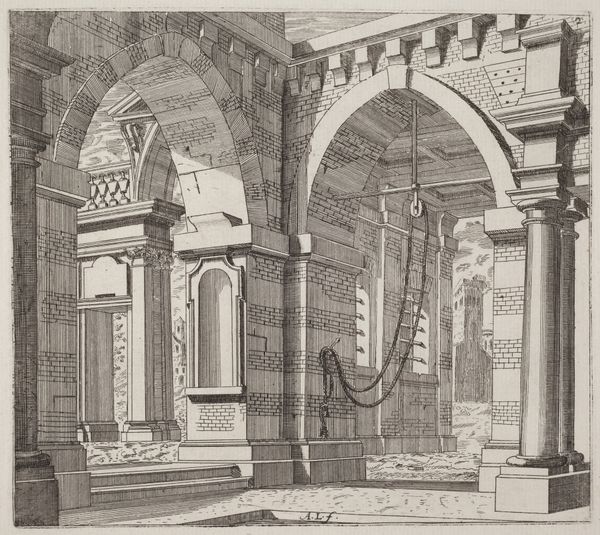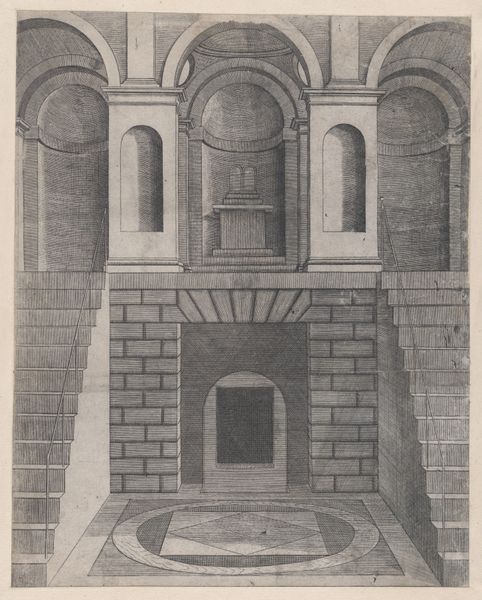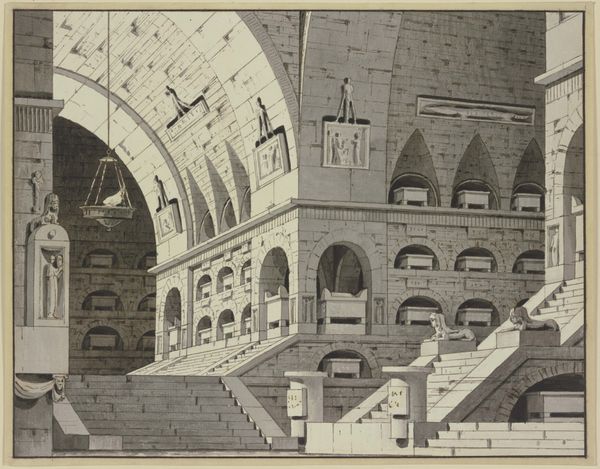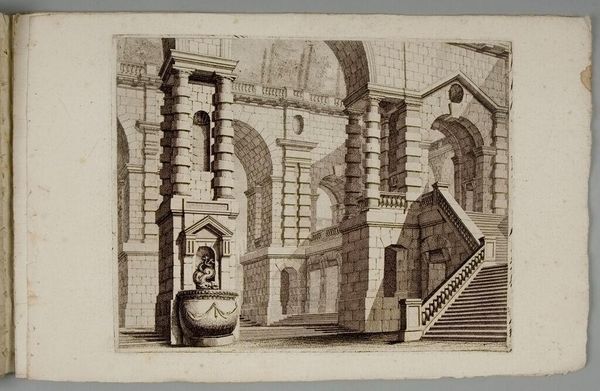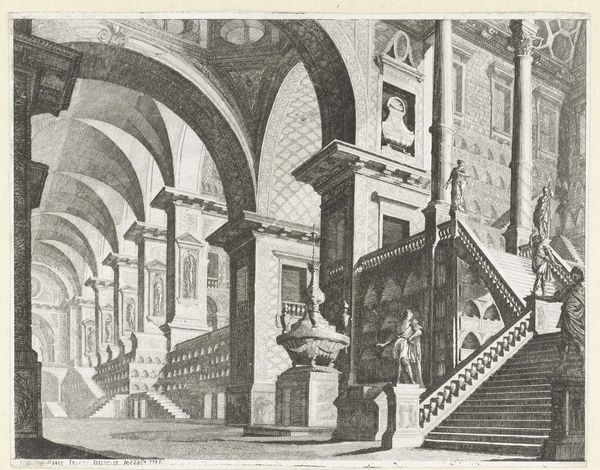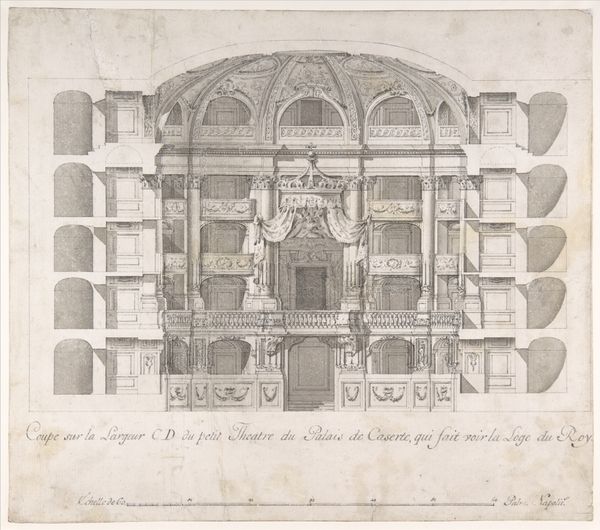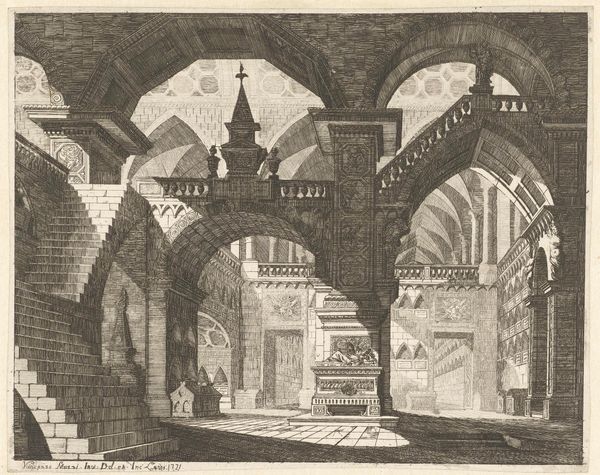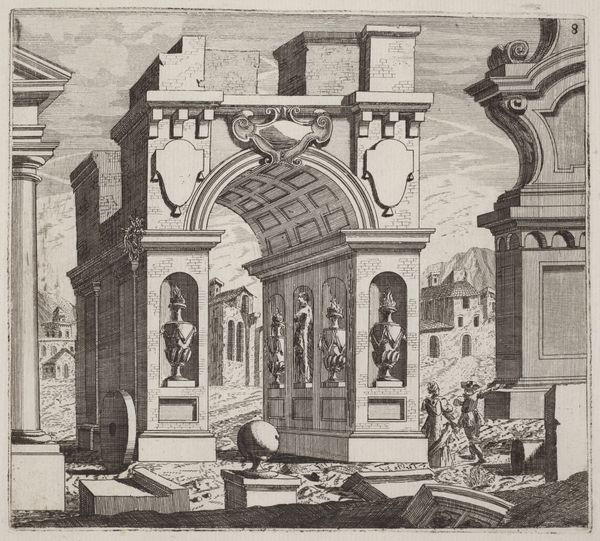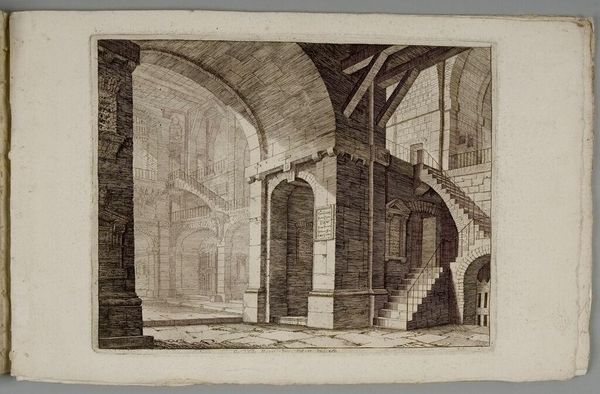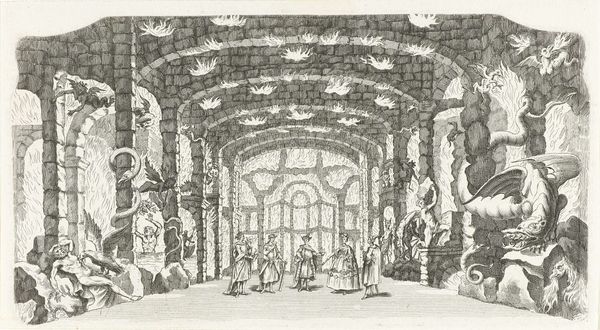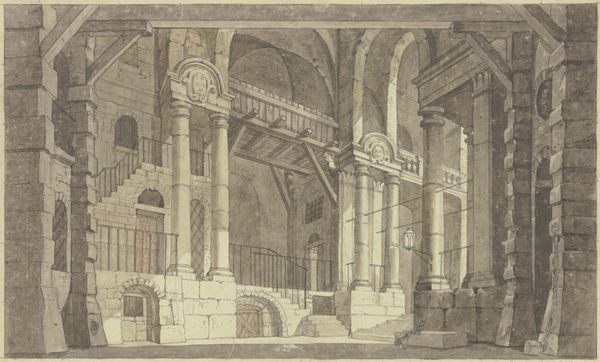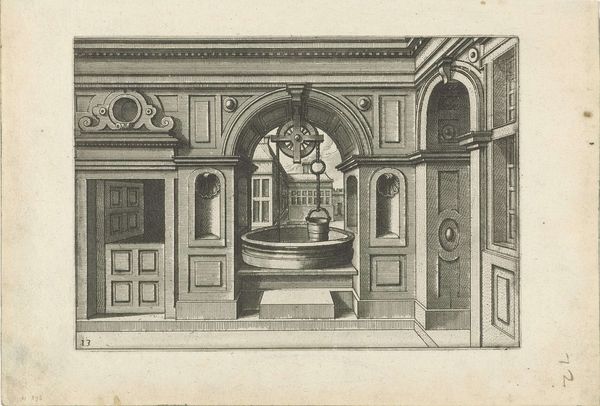
etching, engraving, architecture
architectural sketch
neoclacissism
aged paper
quirky sketch
mechanical pen drawing
pen sketch
etching
old engraving style
sketch book
personal sketchbook
pen-ink sketch
pen work
cityscape
engraving
architecture
Dimensions: height 219 mm, width 272 mm
Copyright: Rijks Museum: Open Domain
Vincenzo Mazzi made this print called "Binnenplaats met waterbasin" sometime in the 1700s. The image is made with etching, a printmaking technique where lines are incised into a metal plate with acid, then filled with ink and transferred to paper. This process, which allows for the creation of multiple impressions, inherently democratizes the image. It takes architecture, something monumental and weighty, and renders it light, portable, reproducible. This creates a contrast between the world of design and craft, and the world of high production. Look closely, and you can see the labor involved in making this image; the countless tiny etched lines, the cross-hatching that creates shadow and depth. Etching was a skilled craft, requiring training and precision, but it also allowed artists to disseminate their ideas widely, participating in a burgeoning print market. By understanding the labor and materials involved, we can appreciate how Mazzi's print participates in the wider circulation of architectural knowledge and aesthetics, pushing the boundaries of what we consider art.
Comments
No comments
Be the first to comment and join the conversation on the ultimate creative platform.
